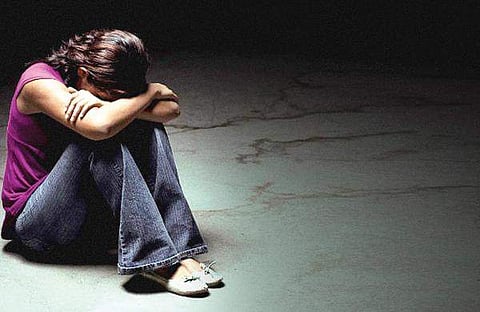

HYDERABAD: Every time a crime takes place, it is magnified across all media. This is especially true when it comes to rape cases. And the way negative information is constantly shown is quite influential and can affect a person mentally. To decode how one can tackle such issues, CE speaks to Dr Radhika Acharya, clinical psychologist and student counselor in MGIT. She helps us understand the negative impact on children, teens and adults and how this can be avoided.
Effect on individuals
Dr Acharya says that sensational news has varied effects across different age groups in different ways. “Children become fear-prone and anxious. If we take rape, they don’t know what is happening but at the same time they know something is wrong. But they start developing insecurity and different psychological problems like anxiety, depression, and hypervigilance,” she adds, further stating that teenagers receive it differently, feeling insecure because they do not know whom to trust and not to trust. “No place is safe. Just take the Kolkata doctor’s rape case. This could cause stress and people will go through psychological issues. In the long run, these things may affect their social behaviour or attitude towards society, causing them to mistrust society.”
The psychologist adds that adults who have children start feeling helpless as they do not feel safe in their own homes. “Slowly, things will lead to ‘learned helplessness’, where they don’t try to do anything about negative situations. This then leads to frustration and it will have a negative impact on their behaviour. They develop grudges and some people may even start developing a criminal mind,” she says.
How to tackle such situations?
The clinical psychologist advises that taking precautions should start from home rather than feeling overwhelmed and helpless and restricting children. “Right from the age of two and three, we can teach children precautions such as good touch and bad touch, how to react when someone touches them inappropriately, safe words and more. Many things can be taught to children.
The key is maintaining good relations with your kids so that they feel free to talk about any situation,” Dr Acharya says, adding that the absence of open communication means that children are deprived of the skills to grapple with tough situations. “Apart from rapes of girls and women, rapes of men are increasing.
And while women are coming out and speaking about it, it is not the same with men. The police also make fun of the situation. There are severe psychological repercussions for boys who get raped,” underscores the expert, pointing out that sometimes, perpetrators are childhood victims.
Dr Acharya emphasises that irrespective of gender, youngsters should be taught some life basics. “Rape is not about clothes but about establishing power and so boys should be thought what real power is: Helping is power, protecting is power. Control is not power. Society and media have greater roles to play here.”
She adds that often, no one talks about solutions but glorifies problems. “Discuss solutions to make society and the environment safe. Social media and media should talk about solutions with different perspectives. If all these sectors work in a responsible manner, we can resolve problems,” she says.